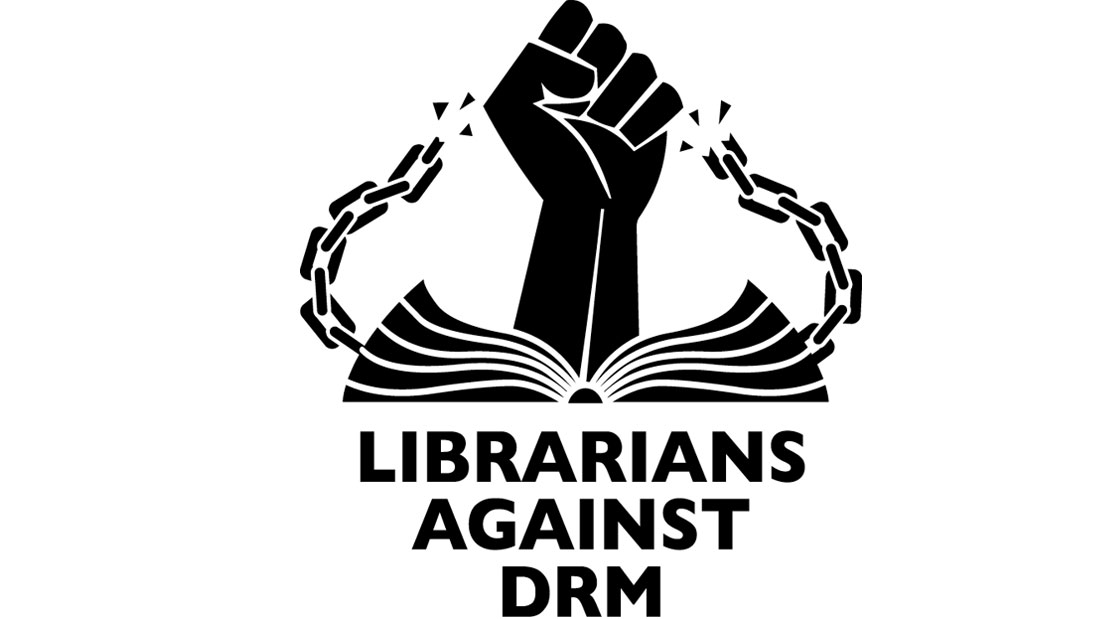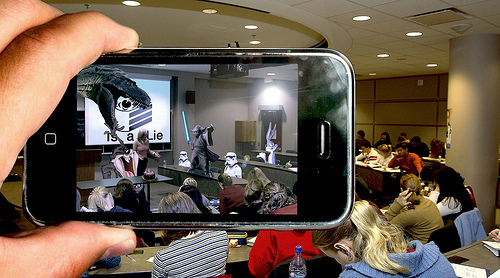
Netzproteste: Bibliotheken fordern "Bill of Rights" für E-Book-Leser
Der US-Verlag HarperCollins hat sich keine Freunde bei den Bibliotheken gemacht – und zwar weltweit. Das Unternehmen hatte Ende Februar beschlossen, ein neues DRM-Verfahren für E-Books einzuführen: 26 Mal soll ein digitales Buch ausgeliehen werden können, ehe es sich selbst unbrauchbar macht. Warum genau 26 Mal? Nun, man hatte errechnet, dass dies der üblichen Lebensdauer analoger Lektüre entspreche.
Die Reaktionen ließen nicht lange aus sich warten. Bloggende Bibliothekare haben nun den Netzkampf ausgerufen und eine Kampagne gegen das Verlagshaus gestartet. Im Mittelpunkt der Proteste steht die Forderung nach einem Rechtekatalog für Bibliotheken, Leser und Autoren. Sarah Houghton-Jan, von der San Rafael Public Library in Kalifornien, hat die Bill of E-Book-Rights formuliert (siehe auch Netzpolitik.org):
Jeder Leser eines E-Books soll die folgenden Rechte haben:
- Das Recht zur Nutzung unter Regeln, die Zugang zum Buch über besitzrechtliche Ansprüche stellen.
- Das Recht, E-Books auf jeder technisch möglichen Plattform zu lesen, und diese frei wählen zu können.
- Das Recht, Anmerkungen zu machen und den Inhalt zu zitieren, zu drucken und in angemessenem Rahmen (fair use) zu teilen.
- Das Recht der first-sale doctrine übertragen auf digitale Inhalte, insbesondere das Recht, gekaufte E-Book aufzubewahren, zu archivieren, zu teilen und weiterzuverkaufen.
HarperCollins hat bereits reagiert – allerdings anders, als es die meisten erwartet hatten. In einem “Offenen Brief an Bibliothekare” würdigt das Verlagshaus die Aufgaben der Bibliotheken – verteidigt aber gleichzeitig sein Vorgehen:
HarperCollins is committed to libraries and recognizes that they are a crucial part of our local communities. We count on librarians reading our books and spreading the word about our authors’ good works. Our goal is to continue to sell e-books to libraries, while balancing the challenges and opportunities that the growth of e-books presents to all who are actively engaged in buying, selling, lending, promoting, writing and publishing books.
[…]
Twenty-six circulations can provide a year of availability for titles with the highest demand, and much longer for other titles and core backlist. If a library decides to repurchase an e-book later in the book’s life, the price will be significantly lower as it will be pegged to a paperback price point. Our hope is to make the cost per circulation for e-books less than that of the corresponding physical book. In fact, the digital list price is generally 20% lower than the print version, and sold to distributors at a discount.
Der Brief wurde von Josh Marwell formuliert, President of Sales bei HarperCollins. Marwell unterstrich zudem, dass man von der neuen E-Book-Politik nicht abrücken werde:
We invite libraries and library distributors to partner with us as we move forward with these new policies. We look forward to ongoing discussions about changes in this space and will continue to look to collaborate on mutually beneficial opportunities.
View Comments

Senkt Amazon den Preis für den Kindle auf 0 Euro?
Es ist bislang nur ein Gerücht – jedoch ein recht überzeugendes. Wie Cnet berichtet,...


![Twitter und Facebook: Stimmt Ihr Timing? [Infografik]](https://www.zbw-mediatalk.eu/wp-content/uploads/2011/06/fbtiming-680x383.jpg)
